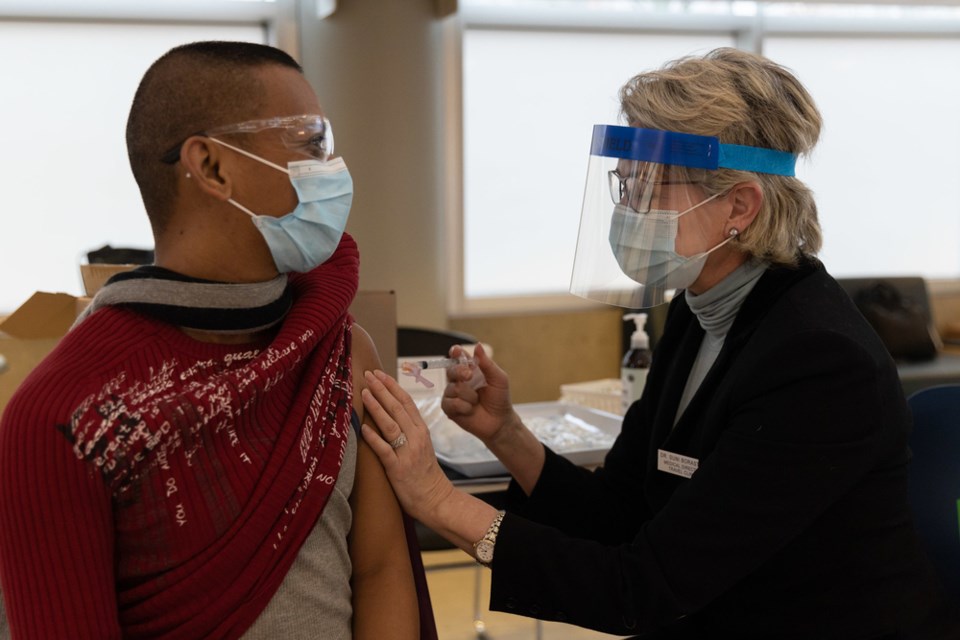There are many people in Canada — approximately 66%, in fact — who have been fully vaccinated, according to federal stats.
Additionally, approximately 72.5% of the population has received at least one dose of the vaccine. Both of these numbers include the 12-and-under population, who remain ineligible to receive a vaccine at this time.
While this reported vaccination rate is high, there has been some concern about whether or not it is high enough to actually end the pandemic.
Recently, some health officials have stated that potentially 85 or 90% of the population may need to be vaccinated to reach herd immunity. Similarly, there is concern about the rising delta variant and how unvaccinated people, in general, contribute more to the transmission in a given community.
Not too long ago, the Public Health Agency of Canada shared some data that showed the effectiveness of the various COVID-19 vaccines. In about 625,000 COVID-19 cases they looked at from December 2020 to early August 2021, nearly 89% of the cases infected people who were unvaccinated.
Over the same period, only about 1% of the fully vaccinated were infected and the remaining 10% was split between partially vaccinated and the not yet protected by the vaccine.
However, on Aug. 30, the provincial government provided B.C.-based data that painted a different picture.
Though the sample is much smaller, the province announced that between Aug. 13 to 26 approximately 81.7% of cases were not fully vaccinated people and about 18.2% of the cases were fully vaccinated people.
While this data still shows that vaccines are working better than going unvaccinated, it is incongruent with the numbers released by the Public Health Agency of Canada. The data is not perfectly aligned, nor is it likely to ever be perfectly aligned. Because of this incongruence, this likely means there are others who will choose to go unvaccinated.
Yet, while attention usually goes toward the unvaccinated people who are outspoken, there are also level-headed people who are simply hesitant and looking for answers amid this data.
Personally, I am all for the vaccine. But, aside from crackpot conspiracy theories, I can also empathize with legitimate reasons why someone may be hesitant to take the vaccine. With governments that can often misstep, it is not hard to draw a line between past failures and our current situation.
Most of the time our government messaging about getting vaccinated seems to be relegated to “Get vaccinated or else!” And, to be fair, implementing proof of vaccination for quite a few public gatherings did boost vaccine newcomers in B.C.
But, that is not how I would choose to approach an unvaccinated friend.
In our everyday lives, commanding our unvaccinated friends to get the vaccine is about as unlikely to work as commanding a teenager to complete their homework.
Instead, approaching vaccine-hesitant friends and family with empathy may, in fact, be much more fruitful in the long run. Though it may take more effort, listening to someone can go a long way in understanding where they are coming from.
Maybe that extra effort is all that was needed to help someone be more confident with the vaccine. And, who knows, maybe a little bit of listening can actually help us all get over the final hump.
Amid all this data, there is still a simple truth: Getting vaccinated is better than going unvaccinated. But, data cannot empathize and sometimes that’s needed much, much more.
Squamish resident Andrew Hughes is a UBC journalism student and freelance reporter for The Squamish Chief.



